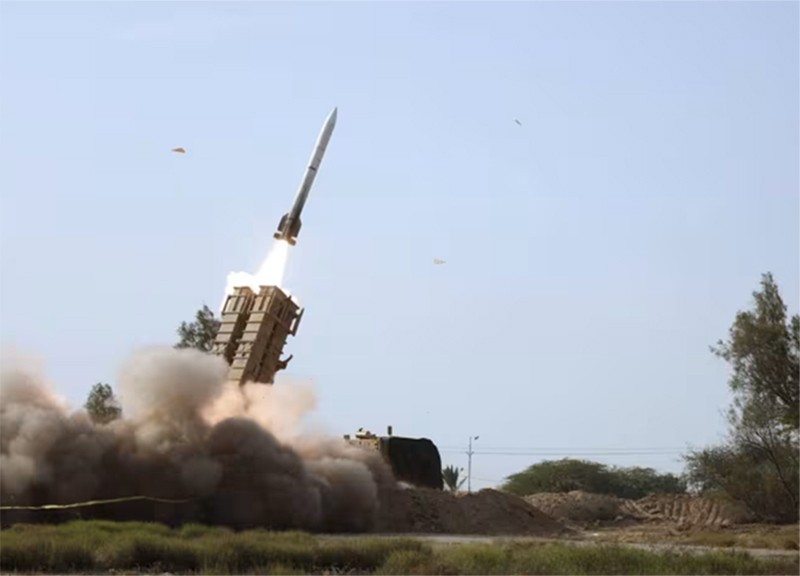
European officials say Europe and U.S. are working on a sanctions response to Iran’s move
By Laurence Norman Michael R. Gordon and Alexander Ward / WSJ
Iran has sent short-range ballistic missiles to Russia, a move that would give Moscow another potent military tool to use in the war against Ukraine, and follows Western warnings not to provide those arms to Moscow, according to U.S. and European officials.
The move comes as Russia has stepped up their missile at tacks on Ukraine, killing dozens of civilians. Washington has in formed allies of the Iranian move in the past couple of days, European officials said, includ ing a briefing for ambassadors.
The Group of Seven nations. previously pledged to hit Iran with coordinated sanctions should Tehran send missiles to Russia for use against Ukraine.
"We have been warning of the deepening security partnership between Russia and Iran since the outset of Russia's full-scale invasion of Ukraine," said Sean Savett, National Security Council spokesman. "We and our partners have made clear...that together we are prepared to deliver significant consequences. Any transfer of Iranian ballistic missiles to Russia would represent a dramatic escalation in Iran's support for Russia's war of aggression against Ukraine." Iran denied it is delivering ballistic missiles for use in the Ukraine war. Iran abstains "from engaging in such actions itself, but it also calls upon other countries to cease the supply of weapons to the sides involved in the conflict," said a spokesman for Iran's mission at the United Nations. There was no comment from the Russian Embassy in Washington.
Russia has received Iranian drones, which it has used in Ukraine. The European Union, the U.S. and the U.K. already have imposed targeted sanctions on Iran and Russia over the delivery of Iranian drones to Moscow.
The missile deliveries could have major implications for the hopes of the new Iranian government to tamp down ten sions with the West. The country's new President Masoud Pezeshkian has said he wants to improve the domestic economy by winning sanctions relief from Europe and the U.S. Iran's military ties with Moscow largely are overseen by Supreme Leader Ayatollah Ali Khamenei and Iran's Islamic Revolutionary Guard Corp.
The deliveries come as Ukraine's air defenses are being challenged by Russian missiles and drone barrages. In the six months to March, Ukraine shot down just 10% of Russian-launched ballistic missiles, according to a Wall Street Journal analysis of data from the Ukrainian Air Force. Ballistic missiles are too fast and large for most air defense systems. The Patriot is Ukraine's only reliable way to shoot down these missiles, but Kyiv has few of those systems.
The Iranian missiles could work alongside Russian glide bombs and drones to try to overwhelm Ukraine, said Fabian Hinz, a research fellow at the International Institute for Strategic Studies, a London-based think tank. "Accuracy is easier to achieve over shorter ranges," he said.
European officials said Friday they were working with their U.S. counterparts on a response that would involve levying more sanctions. With the Iranian move expected, preparatory work on those measures were done over the summer.
The Europeans are likely to ban Iran's flag carrier Iran Air from flying to European airports, which could significantly impact remaining trade ties.
They also are set to target Iranian businesses and people involved in the missile transfers, including transport companies.
While EU officials have said Iranian missile transfers to Russia would be a red line that could wind back some of the sanctions relief won in the 2015 nuclear deal, they have been more tentative recently. One senior European diplomat said that beyond the airline sector, other ties wouldn't be severed.
European and Iranian officials had been hopeful that Pezeshkian's election could mean improved engagement with Tehran as the start of a process to calm tensions over Iran's regional policy and its nuclear program. Tehran was expected to use the coming United Nations General Assembly to signal its outreach.
On Friday, some European officials said proceeding with the missile delivery ahead of the U.N. meeting underlines the weakness of Pezeshkian's government over critical na- tional-security decisions.
European capitals repeatedly have warned Tehran that the Ukraine war is their top security concern and that further Iranian support for Moscow could undermine any improvement in ties














